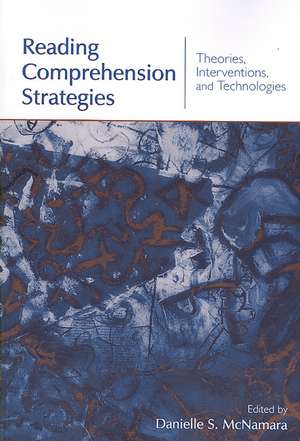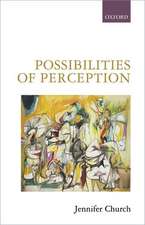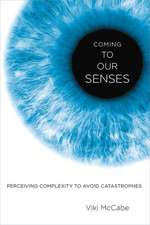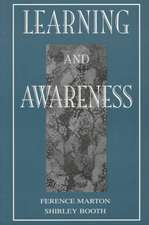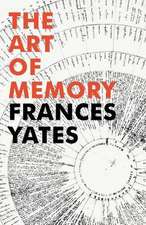Reading Comprehension Strategies: Theories, Interventions, and Technologies
Editat de Danielle S. McNamaraen Limba Engleză Paperback – 22 mai 2007
| Toate formatele și edițiile | Preț | Express |
|---|---|---|
| Paperback (1) | 506.94 lei 6-8 săpt. | |
| Taylor & Francis – 22 mai 2007 | 506.94 lei 6-8 săpt. | |
| Hardback (1) | 1017.99 lei 6-8 săpt. | |
| Taylor & Francis – 24 mai 2007 | 1017.99 lei 6-8 săpt. |
Preț: 506.94 lei
Preț vechi: 596.40 lei
-15% Nou
Puncte Express: 760
Preț estimativ în valută:
96.100€ • 101.29$ • 80.10£
96.100€ • 101.29$ • 80.10£
Carte tipărită la comandă
Livrare economică 15-29 aprilie
Preluare comenzi: 021 569.72.76
Specificații
ISBN-13: 9780805859676
ISBN-10: 0805859675
Pagini: 534
Dimensiuni: 152 x 229 x 32 mm
Greutate: 0.94 kg
Ediția:1
Editura: Taylor & Francis
Colecția Psychology Press
Locul publicării:Oxford, United Kingdom
ISBN-10: 0805859675
Pagini: 534
Dimensiuni: 152 x 229 x 32 mm
Greutate: 0.94 kg
Ediția:1
Editura: Taylor & Francis
Colecția Psychology Press
Locul publicării:Oxford, United Kingdom
Public țintă
ProfessionalCuprins
Contents: D.S. McNamara, Preface. Part I: Theories of Text Comprehension: The Importance of Reading Strategies to Theoretical Foundations of Reading Comprehension. A.C. Graesser, An Introduction to Strategic Reading Comprehension. P. Kendeou, P. van den Broek, M.J. White, J. Lynch, Comprehension in Preschool and Early Elementary Children: Skill Development and Strategy Interventions. J. Oakhill, K. Cain, Issues of Causality in Children’s Reading Comprehension. M.R. Vitale, N.R. Romance, A Knowledge-Based Framework for Unifying Content-Area Reading Comprehension and Reading Comprehension Strategies. Part II: Using Assessment to Guide Reading Interventions. J.P. Magliano, K. Millis, Y. Ozuru, D.S. McNamara, A Multidimensional Framework to Evaluate Reading Assessment Tools. A. VanderVeen, K. Huff, M. Gierl, D.S. McNamara, M. Louwerse, A. Graesser, Developing and Validating Instructionally Relevant Reading Competency Profiles Measured by the Critical Reading Section of the SAT. Part III: Reading Comprehension Strategy Interventions. D. Fuchs, L.S. Fuchs, Increasing Strategic Reading Comprehension With Peer-Assisted Learning Activities. J.P. Williams, Literacy in the Curriculum: Integrating Text Structure and Content Area Instruction. A.M. Glenberg, B. Jaworski, M. Rischal, J. Levin, What Brains Are For: Action, Meaning, and Reading Comprehension. J.T. Guthrie, A. Taboada, C.S. Coddington, Engagement Practices for Strategy Learning in Concept-Oriented Reading Instruction. A. King, Beyond Literal Comprehension: A Strategy to Promote Deep Understanding of Text. Part IV: Automated Interventions to Improve Reading Comprehension Strategies. M.C. Johnson-Glenberg, Web-Based Reading Comprehension Instruction: Three Studies of 3D-Readers. N. Yuill, Visiting Joke City: How Can Talking About Jokes Foster Metalinguistic Awareness in Poor Comprehenders? B.J.F. Meyer, K. Wijekumar, A Web-Based Tutoring System for the Structure Strategy: Theoretical Background, Design, and Findings. D. Caccamise, M. Franzke, A. Eckhoff, E. Kintsch, W. Kintsch, Guided Practice in Technology-Based Summary Writing. D.S. McNamara, T. O’Reilly, M. Rowe, C. Boonthum, I. Levinstein, iSTART: A Web-Based Tutor That Teaches Self-Explanation and Metacognitive Reading Strategies. B. Dalton, C.P. Proctor, Reading as Thinking: Integrating Strategy Instruction in a Universally Designed Digital Literacy Environment. A.S. Palincsar, R.J. Spiro, L. Kucan, S.J. Magnusson, B. Collins, S. Hapgood, A. Ramchandran, N. DeFrance, A. Gelpi-Lomangino, Research to Practice: Designing a Hypermedia Environment to Support Elementary Teachers’ Learning of Robust Comprehension Instruction. Part V: Conclusion. D.S. McNamara, Y. Ozuru, R. Best, T. O’Reilly, The 4-Pronged Comprehension Strategy Framework.
Recenzii
“What an exciting discovery, to find a book containing so many outstanding chapters on reading comprehension, many of which were written by the world's most famous scholars on this topic. For those who want to find out how the mind works as the reader engages in the most mysterious task of making sense out of what is printed on a page, and for those who want to find ways to increase the reading comprehension of their students, this book is essential reading.” - Jay Samuels, National Reading Panel
“This volume represents the state of the art in connecting theories of readers’ cognitive processes with practical interventions for improving their comprehension. In a field of study that is notoriously complex and hard to synthesize, “Reading Comprehension Strategies” is a useful guidebook to what is known, how we might best conceive of the problems, and what kinds of new approaches are finding empirical support. The serious exploration of how new technologies can support readers of different sorts in becoming better readers will be particularly intriguing for anyone concerned with the future of literacy education.” - Michael Schober, New School for Social Research
“There is no doubt that reading is fundamental, and basic literacy skills are critical for learning to read, but the ultimate goal of reading is comprehension. This collection discusses how we may move readers past "literal" comprehension toward conceptual understanding of content-area knowledge. The chapters focus on strategy instruction and comprehension assessment and serve as excellent contributions to our knowledge of how we may best promote "reading to learn".”- Jennifer Wiley, University of Illinois at Chicago
“Reading Comprehension Strategies: Theory, Interventions, and Technologies presents a readable account of the current state of comprehension research. The authors represent some of the most productive researchers in the field, each discussing two critical concerns that are traditionally considered separately: (1) They outline their specific investigations into the mechanisms that underlie comprehension, and (2) They assess ways in which the operation of these mechanisms might indicate useful remediative strategies and technologies to address comprehension difficulties. The resulting volume is an excellent resource for individuals in the diverse fields of education, cognition, and instructional design.” - David, N. Rapp, Northwestern University
“This volume represents the state of the art in connecting theories of readers’ cognitive processes with practical interventions for improving their comprehension. In a field of study that is notoriously complex and hard to synthesize, “Reading Comprehension Strategies” is a useful guidebook to what is known, how we might best conceive of the problems, and what kinds of new approaches are finding empirical support. The serious exploration of how new technologies can support readers of different sorts in becoming better readers will be particularly intriguing for anyone concerned with the future of literacy education.” - Michael Schober, New School for Social Research
“There is no doubt that reading is fundamental, and basic literacy skills are critical for learning to read, but the ultimate goal of reading is comprehension. This collection discusses how we may move readers past "literal" comprehension toward conceptual understanding of content-area knowledge. The chapters focus on strategy instruction and comprehension assessment and serve as excellent contributions to our knowledge of how we may best promote "reading to learn".”- Jennifer Wiley, University of Illinois at Chicago
“Reading Comprehension Strategies: Theory, Interventions, and Technologies presents a readable account of the current state of comprehension research. The authors represent some of the most productive researchers in the field, each discussing two critical concerns that are traditionally considered separately: (1) They outline their specific investigations into the mechanisms that underlie comprehension, and (2) They assess ways in which the operation of these mechanisms might indicate useful remediative strategies and technologies to address comprehension difficulties. The resulting volume is an excellent resource for individuals in the diverse fields of education, cognition, and instructional design.” - David, N. Rapp, Northwestern University
Notă biografică
Danielle S McNamara(Institute for Intelligent Systems, The University of Memphis)
